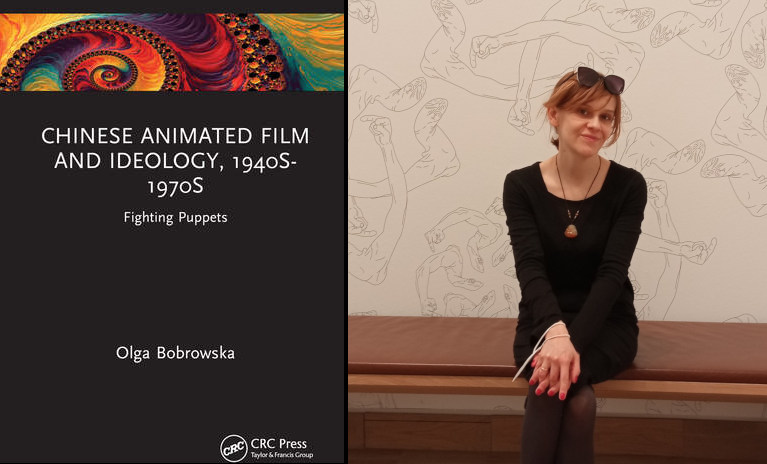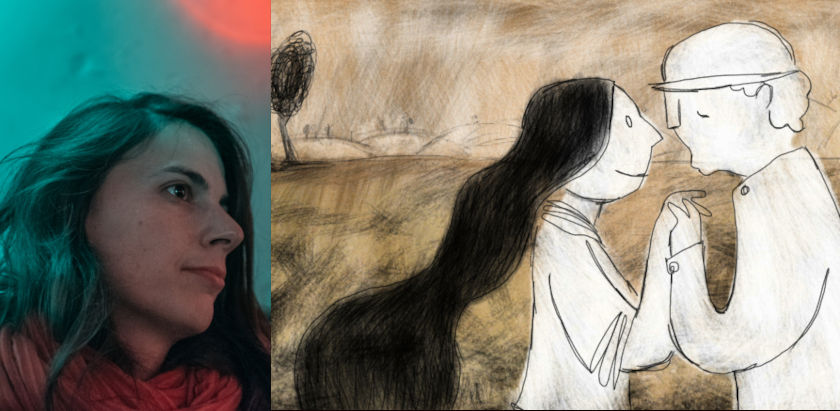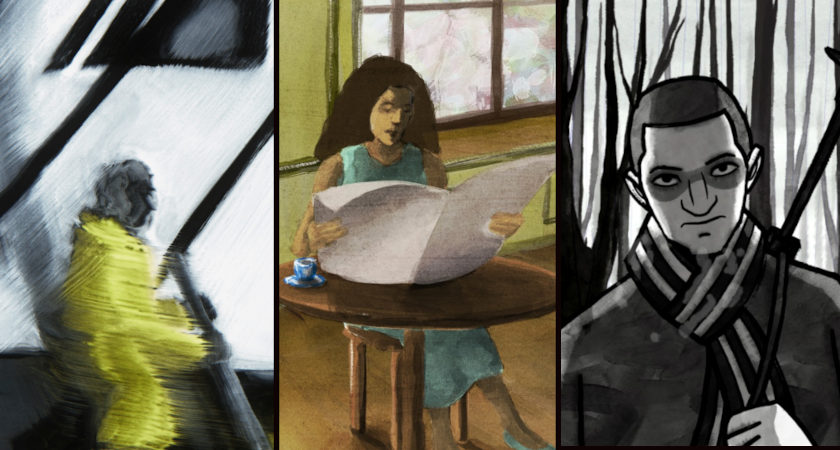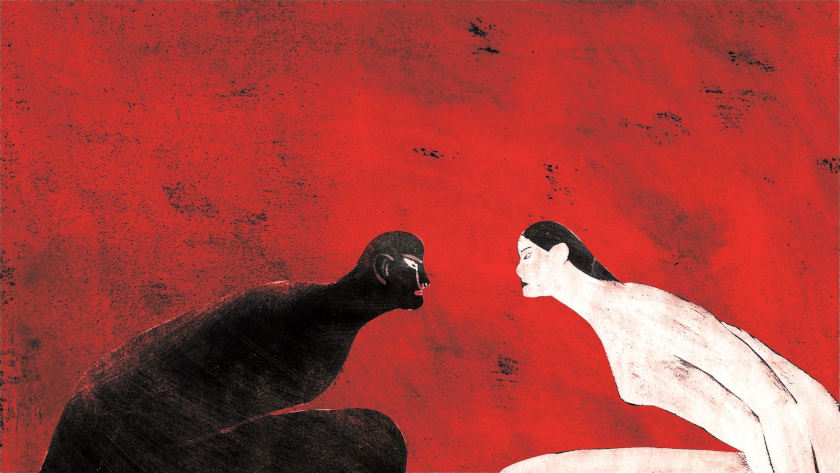Promising Beginnings: A Conversation with Chris Lavis
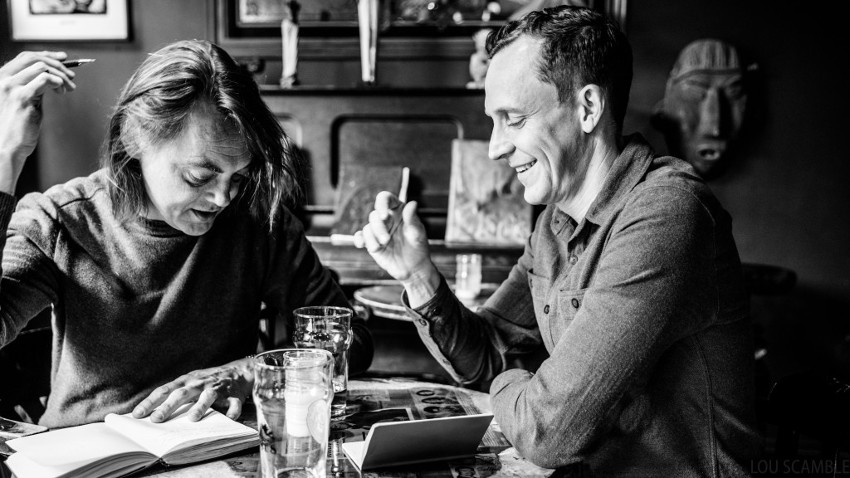
Sometimes there are teams of creative personalities who seem inseparable, let's say: imagine animated film history without Fleischer and Quay Brothers, or the Themersons couple. Neither family, nor partners, Chris Lavis and Maciek Szczerbowski (aka Clyde Henry Productions) are friends and creative collaborators whose paths crossed over twenty years ago, and among other places, brought them together to Cannes and the Oscar Awards ceremony in 2007.
The artistic route they have taken sometimes assumes the shapes of the labyrinths coming from the literary realm of Bruno Schulz or mysteriously leads into endless Kafkaesque absurd. Suspended between poetics of bygone or imaginary Central-East Europe, witty and down-to-earth punchlines, and pursue for technological perfection, the work of Lavis and Szczerbowski keeps on fascinating. These masters of puppets chose now to explore new medium, and this time Chris Lavis came to Annecy by himself to present their cinematic VR experience Gymnasia.
ZF: Can you describe your first VR experience that gave you a notion that you as an artist, who is so much engaged in stop motion animation, can actually use it as a technique adequate for your expression?
CL: Our first VR experience was seven years ago, after meeting film directors Félix Lajeunesse and Paul Raphaël, who showed us one of their very first experiments in Cinematic VR, a twenty-five second test. You are inside a church, sitting on a wooden bench. A woman sits beside you, then turns her head to look you in the eyes, and it’s a startling, intimate moment. What Félix and Paul discovered was revolutionary; that VR is a medium of presence and intimacy. After collaborating with them on a piece called Strangers With Patrick Watson (2014), Felix and Paul went on to become pioneers in VR and we went back to our films, but a lingering question remained, if you take that same moment, that intimate eye contact, and translate it to a puppet, would there be that same sense of personality and presence?
ZF: And throughout these seven years have you been been reflecting upon, researching, experimenting, testing...?
CL: We didn't, no, we did zero tests. But we reflected upon it. And this question of the puppet in VR was like a pebble in our shoe for years. We did other projects, but this pebble brought us back. Then it took a year to put things together between the National Film Board of Canada and Felix & Paul Studios. Gymnasia is essentially an expensive experiment to answer a simple question.
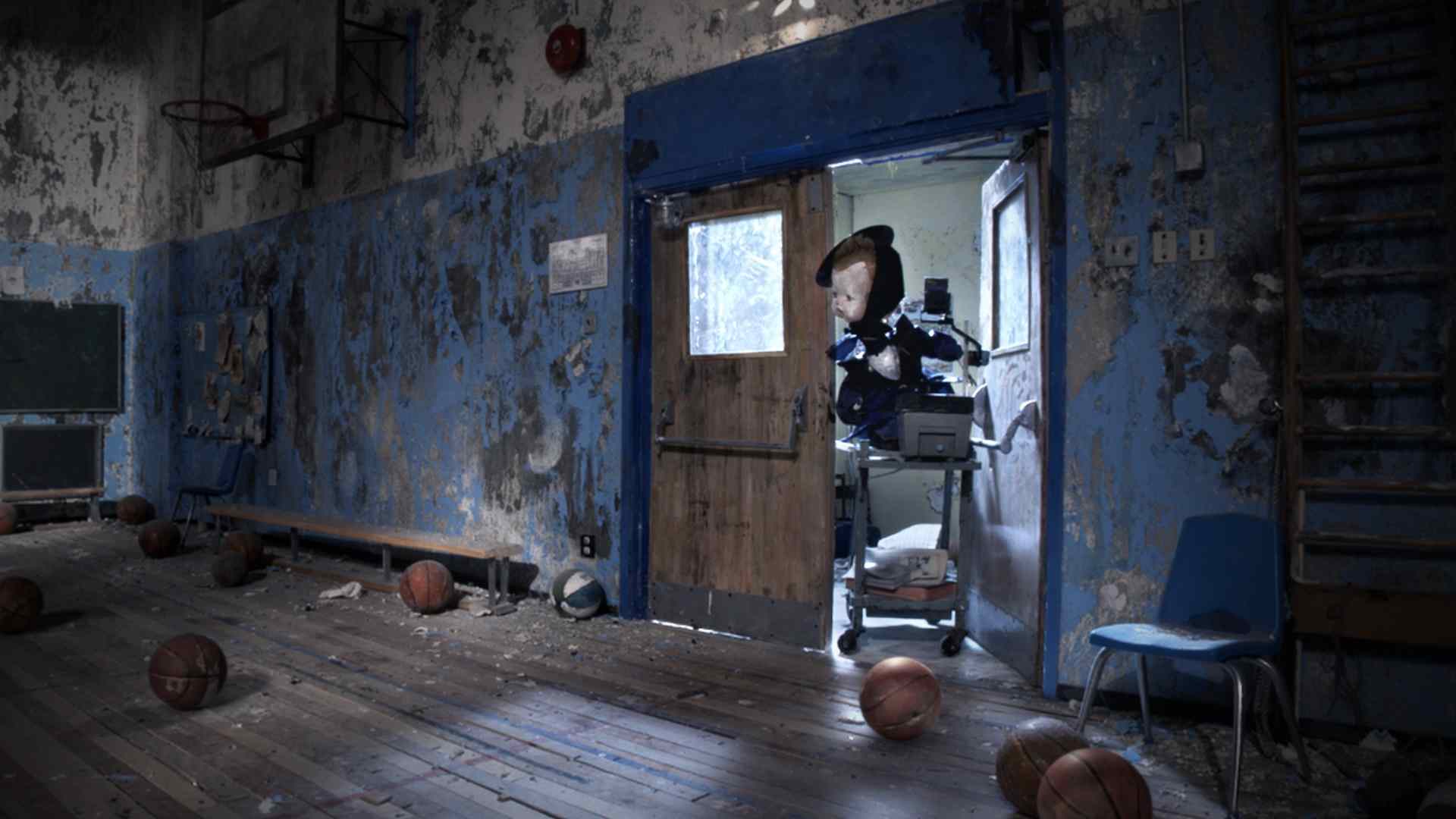
Gymnasia, Chris Lavis and Maciek Szczerbowski
ZF: When something is expensive but you still have means to do it, then it comes to the situation when you have to agree on some compromise.
CL: Oh no, no, zero. We had an advantage of having a National Film Board of Canada behind us and they had no reason to turn this into commercial piece. Also, a peculiar virtue of virtual reality is that it's such a new and strange medium that no one understands the rules yet. So what's a compromise? It's not like somebody can say “Hey, you have to make an action movie” or “You have to fit the story into this formulaic structure” – there's no structure! The only way to be commercial in VR is to base your work on something like Star Wars, in other words to work on commissions, like celebrity subjects or intellectual property, but even then no one can force a conventional story because the medium rejects it.
ZF: It's true that nobody understands the rules yet, and the average viewer rarely understands the creative process behind VR. In your work you confuse the audience even more by using stop motion, 3D, 360 degree video, miniatures... How did you translate stop motion puppet to VR?
CL: It all begins with building the space, so unlike traditional stop motion, from the very beginning you conceive a space with 360 degrees. We built the entire gymnasium in such a way so that from every direction, you are there. You close the door behind you and the outside world disappears. This is not a film set where you have the puppets and the miniatures on a desk and beside that the studio and lights. Absolutely you can't do that here. So the space becomes the story. You’ve built it, you've given it dust and history, and so the next question becomes where is the camera going? In other words, where are you, the viewer? Practically, you want the camera view to optimize how you see the room but it's also an artistic problem. Why are you there? Who are you? In VR camera placement is a matter of identity. Gymnasia doesn't take into account any video game type interactions, but we still care about your presence in the space.
ZF: I understand that creating VR space is based in motion and in this sense the story is created. Does it require from you as an artist an interest in psychology?
CL: At first we fooled ourselves into thinking we were really like scientists, making some sort of psychological experiment. But it's not true, it's not science. It's philosophy. Specifically phenomenology, the philosophy of experience. And I think that VR is an amazing medium for exploring how we experience the world. We were inspired by the ideas of Gaston Bachelard’s The Poetics of Space (1957). This should be a compulsory VR handbook, because it's about the power of space and memory, about the stories rooms tell, as opposed to the Aristotelian three-act structure which, as I said, this medium utterly rejects.
ZF: In Gymnasia you use puppets and other objects, but obviously the puppets mainly attract our attention, especially in this very uncanny moment when the puppet boy looks directly in our eyes. Have you first decided upon position of viewer in the experience and only later created role and function of the puppet, or were this processes simultaneous and interconnected?
CL: They were simultaneous, yes... We've dedicated our lives to pushing puppets into places they've never been, and that also became the experiment. They have doll faces which we have never done – usually we sculpt the heads. We taught a stop-motion workshop where we began by giving each student a doll head and a set of doll hands, and they built a puppet from there. We put aside one of the extra heads and there he sat on a shelf for years, waiting for his moment to be written into a story. One day he became the Boy in Gymnasia. We fused him with Tadeusz Kantor's child from The Dead Class, and that fusion is the experience. Because Kantor's boy is death. His death, your death, the death of your childhood. And the decay of the space is the decay of the memory, decay of the body…Hmm, I'm attempting an intellectual argument for a decision that was not intellectual – of course there were going to be puppets! That's our thing!
ZF: You were preparing for this project through the research conducted in the house of Tadeusz Kantor in Hucisko, Poland. For how long did you want to infuse your VR project with Kantor's art?
CL: Kantor's work was a part of the story in a very peripheral way until we went to Hucisko. It happened while we were there but I can't even say how it happened. It was the house, just being there, reading his notes, looking at the photos. Again it was non-intellectual, it was subconscious. We were living in his house for three weeks, twenty-four hours a day, going for walks down to the little corner store for beers and tomatoes, reflecting on Kantor’s life and our story, and the next day walking back to the store and starting again...
ZF: The work refers quite directly to stylistics of The Dead Class (Andrzej Wajda's 1976 realization).
CL: Let's say the most obvious way is the color of the boy's face: Kantor Baltic blue. And there are motifs: school (although our set is the gym not the classroom!), shadows on the walls... but it comes as much from our philosophy as from Kantor's work. Sometimes it's just confirmation that you are on the correct path. So you're having this dialogue with the past, a little dialogue with Kantor, a little dialogue with Starewicz, Méliès…
ZF: How directly you wanted to recall Kantor's philosophy? Whenever he had changed his standpoints he was consequent, he was not rebelling against what he had previously achieved but consciously stating that he had exploited some concept to its fullest extent.
CL: And Kantor was not afraid to go down silly paths. I think his umbrellas are ridiculous. But not everybody feels that way. And the umbrellas are inspirational anyway, in that they show a spirit of experimentation and a willingness to fail. Gymnasia has come together but it could have been quite silly: being in the gym with a little puppet...
ZF: When Tadeusz Kantor created The Dead Class he was looking for the way to achieve sort of a completed work of art that doesn't allow interactions with the audience. I think it is quite interesting that you used this work-moment in Kantor's art as the major point of reference, and transferred it into VR, a medium that assumes viewer's activity as their gaze makes the space moves hence makes it to tell the story.
CL: That's just one of many ways in which Gymnasia diverges from Kantor’s work. We are putting you in a world without people, whatever you are it's not a person, you have no body. VR relies on everyone coming into the medium with their own little toolbox. It's like an organism that can fuse the cells of an animal with the cells of a plant or fungus. It jumps media like a virus jumps species and we're all putting our little talents in. So Maciek and I are bringing puppet cinema, site-specific theater, Kantor's aesthetic, gluing it together with the vocabulary developed by Felix and Paul. We took all that and jumped in...
ZF: Where are you heading now?
CL: We're making a film with the National Film Board of Canada, that's a very traditional puppet film.
ZF: You need the break from VR or is that a money issue?
CL: There's not a lot of money for experiments in VR. Take a look at most festival programming and see how many of the pieces involve preexisting intellectual property. The viewership of this medium is so small that it has to rely on venture capital, and that is not necessarily the most healthy way to push an artistic medium. We had this wonderful chance to work on this because Félix and Paul's team were eager and willing to make an experimental piece, but they can’t play in our little sandbox all the time or the whole enterprise would collapse.
ZF: If it was not a question of money, what kind of VR experience you would like to create?
CL: But I think money is always the question! If we take a Marxist approach, if the medium's survival was tied to commercial success it would already be dead, but because there is Silicon Valley speculation, a gold rush mentality that hopes to push the medium into the mainstream, it lives still, it's being invested in still. The first press we did for Gymnasia was for Forbes magazine. They typically don’t interview puppet-film directors. The survival of VR is fundamentally an economic question: will the medium eventually make money for the investors? Luckily, no one knows yet.
ZF: Traditional film conventions teach us that the medium succeeds in viewership if it evokes huge emotions, identification processes, psychological attachment so people can follow. And here it seems there is a problem: VR is exciting, but as one friend put it, it is a very lonely medium.
CL: Yes, it is a lonely medium, however interesting enough...there is a lot of excitement amongst the VR cognoscenti about experiences that are more akin to theatre, collective rather than individual. Let's say you go to a place, like the PHI Centre in Montreal, there’s fourteen of you in a room, you put on the goggles, and you all participate in the same story, there are even actors alongside you. This kind of collective experience is worth exploring, again, because it’s something you can monetize. But it's quite hilarious: the great hope for making money in VR is to have people come to your theatre and sell them tickets. It's like they've rediscovered the wheel!
ZF: Coming back to earth: new traditional puppet film you're making...
CL: Yes, we're coming back to earth and making a romantic puppet film with the very cynical ending.
ZF: That sounds promising.
CL: We'll see, they all sound promising in the beginning!
Olga Bobrowska, Annecy Festival 15.06.2019




